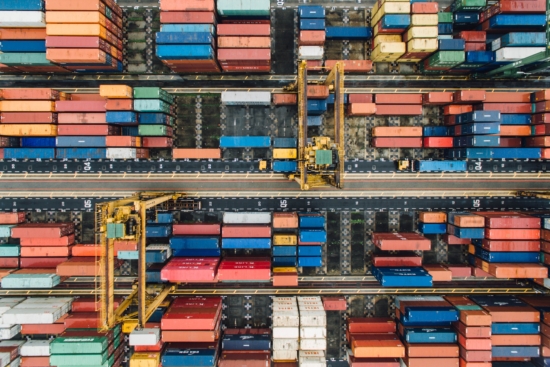Decision pending – Chinese TBR tyre distributors await EC’s tariff ‘recalculation’ details
 Tyre importers are awaiting clarity on the new tariff decision following the ECJ’s annulment of import duties (ChutterSnap; Unsplash)
Tyre importers are awaiting clarity on the new tariff decision following the ECJ’s annulment of import duties (ChutterSnap; Unsplash)
Triangle Tyre general manager Europe, Corrado Moglia seeks clarity on new tariff decision following ECJ annulment of 2018 duties
The European representatives of Chinese tyre manufacturers continue to await the European Commission’s decision on the future of tariffs on truck tyres imported from the country following the European Court of Justice’s annulment of the tariffs introduced on 8 May 2018. While the EC’s deputies of the Unit DG Trade have talked about a “re-investigation” in response to Chinese representatives calling for the EC to implement fully the judgement of the ECJ, Tyres & Accessories understands that the more likely outcome is rather a recalculation of the tariffs the EC will apply, while manufacturers’ European operations are also bracing for the possibility of the backdated implementation of newly set rates. T&A asked Corrado Moglia, general manager of Triangle Tyre’s European operation, who has been representing the company’s interests in discussions with the EC, about how the situation is developing from his point of view.
While the EC set a deadline for its “investigations’ of 7 April 2023, Moglia has been expecting details on a “recalculation of the tariffs” to likely arrive within 2022. The big question in his view is whether the new, lower tariffs will be enforced retroactively to July 2022. This was the point at which new TBR imports from China were registered without duties applied. European importers are understandably nervous about whether the tyres coming into the European market were only temporarily duty-less. Were retroactive duties to be enforced, the decision could trigger a further legal challenge from the China Rubber Industry Association (CRIA) and China Chamber of Commerce of Metals, Minerals & Chemicals Importers & Exporters (CCCMC), whose original case led to the ECJ’s decision to annul the tariffs. Moglia added that “the EC deputies sounded understanding and collaborative during the online September hearing” and he hopes they are “seriously considering the ruling of the European Court of Justice.”
T&A asked Moglia whether the enforcement of “recalculated” tariffs for the remainder of the implementation period following this decision would be the final word on the matter. Moglia said he hoped this would be the case, adding that the attention of Chinese tyre importers would turn their attentions to October 2023, when the current five-year period of tariffs will end. At this point the EC will consider whether to renew the regimen. Moglia expressed his opinion that the EC would not seek to continue with the tariffs. He also shared his view that “those few major manufacturers that had pushed for the tariffs to be imposed have most probably realized that the ECJ decision should make them less willing to participate in arguments for the enforcement of new tariffs.” Moglia told T&A his view that “the original documents and information that were supplied in 2017-2018 to the EC to claim rights of imposing the duties, were actually biased and misleading.”
What can those who have paid the now annulled tariffs do?
Moglia expressed some frustration with the current situation for those who have been paying tariffs on imported Chinese truck tyres since 2018, describing the lack of clarity as a “mess”. As things stand, he told T&A, “any importer that has paid tariffs in the previous 36 months can apply for reimbursement.” However, “so far only a few customers of Chinese brands have done it.” This situation is not helped by the wait for the EC’s decision on recalculated tariffs and their potential retrospective enforcement. Moglia said importers do not know whether the EC will allow them to get back their money in full, or whether they “will try to impose the new tariff” on these already-paid tariffs. In theory, the EC could “reimburse only the difference between the old and the new [tariffs].”
He added that the situation has not been clear to customs agents in European countries too. He claimed that agents had in some cases still enforced the annulled duties at certain ports “because they didn’t understand the documentation sent by the EC.” Moglia said that “mistakes in the definitions” in TARIC, the integrated tariff database of the European Union also contributed to the confusion.
The situation in the UK, which left the EU after the annulled tariffs were introduced into UK law due to its membership status, offers another dimension to this issue. The UK’s Trade Remedies Authority (TRA) is continuing to enforce the original tariffs since the ECJ decision to annul them came after the country had left its jurisdiction. Moglia told T&A he believes that the reasons for the decision to continue are based on the country lacking the will or ability to work on the issue, and the desire to retain the proceeds from the tariffs.


 Apollo Tyres
Apollo Tyres

Comments